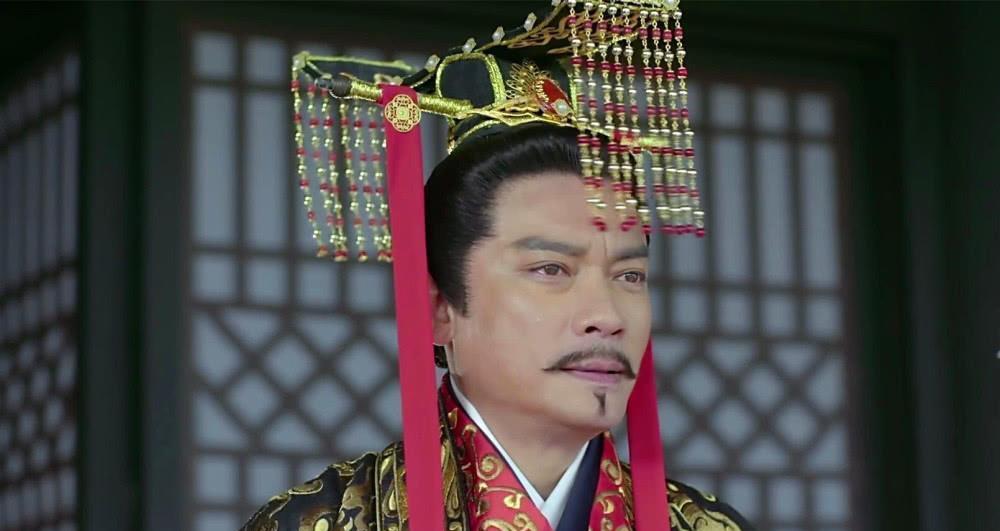During the Spring and Autumn Period, with the development of productive forces and the growth of population, the previous well-field land system was no longer able to meet the needs of production. This situation existed to varying degrees in various princely states, and the State of Qi was still relatively serious.
To reverse this situation, it is time to reform the system. So, for the country of Qi, how to further mobilize the enthusiasm of workers?

According to the "Chinese Qi Language", Guan Zhong, the prime minister of the State of Qi, formulated the policy of "expropriation of land and decay", that is, to determine the level of taxation according to the fertility of the land and the amount of output, which was an important change in China's ancient fiscal collection system.
Guan Zi (管子), courtesy name Yiwu (夷吾), was a native of Yingshang (Yingshang County, Anhui Province) during the Spring and Autumn Period, and a descendant of the surname Ji. Year of birth unknown, died 645 BC. When he was a teenager, Guan Zhong's family was poor, and in order to make a living, he once did business with his friend Bao Shuya. Because of the four directions of business and the well-being of the people, an important policy of its economic thinking is "enriching the people". Later, he was recommended by Bao Shuya to assist Duke Huan of Qi in governing the State of Qi.
Guan Zi served as the prime minister of the State of Qi for forty years, assisting duke Huan of Qi in carrying out drastic reforms internally, and building the great cause of "nine princes and one Kuang world", making the state of Qi the head of the five hegemons.
According to historical records, scholars, politicians and thinkers of all generations have highly praised Guan Zhong and revered him as a model, which has a great influence on future generations. The economic ideas in his book "Pipe" are respected as classics by later generations.
It is in this book that Guan Zhong put forward the famous idea of "phase and land decay". According to the "Guan Zi Da Kuang", "Fu Lu takes millet, the case field is taxed, and the tax is one for two years old: three in the previous year, two in the middle age, and one in the next year; hunger in the old age without taxation." Years of hunger and taxation. That is to say, it is stipulated that regardless of public land (well field) or private land, all taxes will be levied according to the actual number of acres; the average tax rate is 10%,; and the year of disaster harvest failure will be reduced or reduced according to the situation.
It is also recorded in the "Chinese Qi Language" that in order to promote the development of the fish and salt industry, "the fish salt of the Tongqi state is in Donglai, so that the Guanshi city is ridiculed and not levied", that is, the fish salt trade is only an inspection and does not collect customs duties and municipal taxes.
In addition, according to the "Guan Zi", the State of Qi had various taxes, such as the field tax of "tian mu", the household registration tax of "bangbu", the poll tax of "levying people", the real estate tax of "with the house", and the movable property tax of "six animals".
In fact, after guan zhong inspected the distribution and characteristics of the land of the state of Qi, he produced and collected taxes according to the terrain and geology, which was in line with the expectations of the people, and also made a guarantee for increasing grain production.
For example, in the "Herdsmen" section, Guan Zi put forward the theory of farming and warfare, "Civil farmers are reclaimed in the fields, many are cultivated in the fields, many are rich in the country, the rich in the country is strong in the army, and the victory is in the land." It is because the first king knew that the people, the strong army, the vast land, and the rich country must be born in the millet land, so it is forbidden to do the last work, stop the odd coincidence, and benefit the peasants. This reflects his consideration of the dual interests of serving the people and the country.
Another example is "Whoever has a landed herder, keep it at four o'clock in the barn." If the country has more wealth, it will come from afar, the people will stay in the land, the warehouse will know the etiquette, the clothing and food will know the honor and disgrace, the upper service will be six relatives, and the fourth dimension Zhang will be military orders. ”
It can be seen that the basic pattern of guanzi's ethical thinking basically includes the relationship between the state, the land, and the people.
In short, "decaying with the land" is a land policy full of dialectical consciousness. This is the beginning of the collection of land taxes in our country. By recognizing the legality of private land, it also recognizes the ownership of land by the owners of private land, and accelerates the disintegration of the well field system. Economically and politically, it won the support of the common people and made a good guarantee for consolidating the power of the State of Qi.